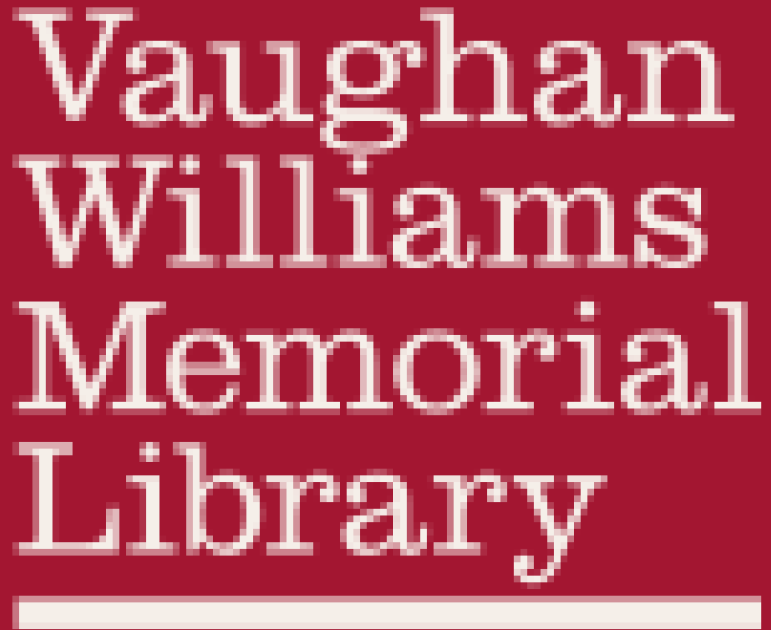Library lectures 2016
The VWML presented a series of evening talks by guest speakers, covering a range of topics on traditional dance, song, music, and customs from January - April 2016.
Along with the Raggle Taggle Gypsies-O
Keith Chandler
Tuesday 26 January 2016, 7pm
For several centuries itinerant Gypsy fiddle players provided music to accompany dancing at fairs and feasts up and down the country. This talk looks at various aspects of performance, including the contexts for music-making, the role of transmission within family units, and the more problematic subjects of repertory and playing styles. It will be illustrated with a wealth of images, many of them not widely known, and a scattering of musical examples.
Keith Chandler has researched extensively into the historical, social and economic aspects of music and dance, in particular those forms common in the southern half of England during the nineteenth century. His published works cover a diverse range of subjects from Scottish champion melodeon players recorded before 1920, to the nineteenth century phenomenon of the dancing booth. A recent article for Folk Music Journal examined in depth the life of Berkshire Romany fiddle player belonging to an extensive kin network of music-makers. He is best known for his work on the morris dance of the south Midland counties published by the Folklore Society in 1993.
“It was mighty!” : Irish Traditional Music in London
Reg Hall
Tuesday 23 February 2016, 7pm
Irish music has long held an important place in London's music scene. In this talk, Dr. Reg Hall explores how traditional music-making was transplanted from rural Ireland to an English city in the early post-war years.
Reg Hall has been actively involved as a musician within the Irish community in London for 60 years. He is the editor and co-producer of the 28-volume Voice of the People CD series on Topic Records. His post-graduate and on-going research has been on the history of Irish music and dance in London and two further volumes in the Topic series on that subject are in production.
His work was recognised by Irish national television TG4 by the Gradam na gCeoltoiri award in 2009.
Maypoles, Morris and Minuets: Restoring Old England’s Dances before the Folk Revival
Theresa Buckland
Tuesday 22 March 2016, 7pm
In late nineteenth century England, many years before Cecil Sharp's interest in collecting and publishing morris, sword and country dances, there was considerable interest in reviving the dances of 'Merrie England'. Circulating across the theatre, festivals, schools and dancing academies was an eclectic repertoire of dances believed to be essentially English. It included not only maypole and morris dances but also minuets and pavanes. This illustrated lecture looks at the appeal of 'English' dances to the popular historical imagination, their use by significant individuals such as Mary Neal and Grace Kimmins, and the role of such dances in building a sense of citizenship in progressive England.
Theresa Buckland is Professor of Dance History and Ethnography at the University of Roehampton, London. Her publications include various articles on north-west morris and coconut dancing, two edited collections: Dance in the Field and Dancing from Past to Present, and the book Society Dancing in England. She is currently researching popular dancing in Victorian England.
Night Visit Songs Revisited
Vic Gammon
Tuesday 26 April 2016, 7pm
Night visit songs deal with the secret visit of a lover by night and his (sometimes her) departure in the early morning. Songs with this theme go back to classical and medieval times but flourished in England, Scotland and Ireland between the sixteenth and twentieth centuries.
Considered as a unique genre, a significant difference between versions of the songs relates to whether the visiting lover is flesh and blood or a ghost. This talk discusses these variants, whether the song has connections to courtship customs, the song's place in the social history of gender relations, how it relates to other sorts of literary texts, and critically examines academic writing on the subject.
Vic Gammon was Senior Lecturer in Folk and Traditional Music at the International Centre for Music Studies at the University of Newcastle between 2004 and 2010. His interests in the vernacular musics of Britain and North America, in social history, and his continuing activity as a performer form the basis of his teaching and research.


